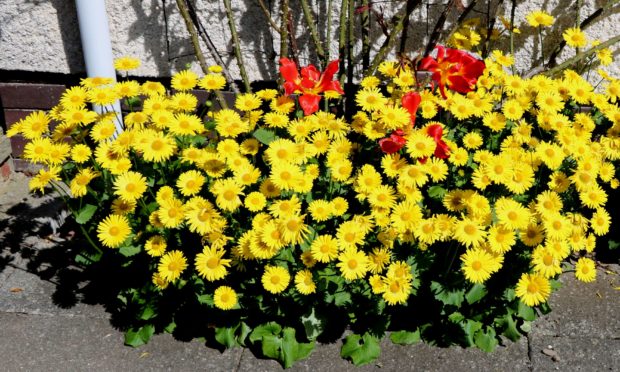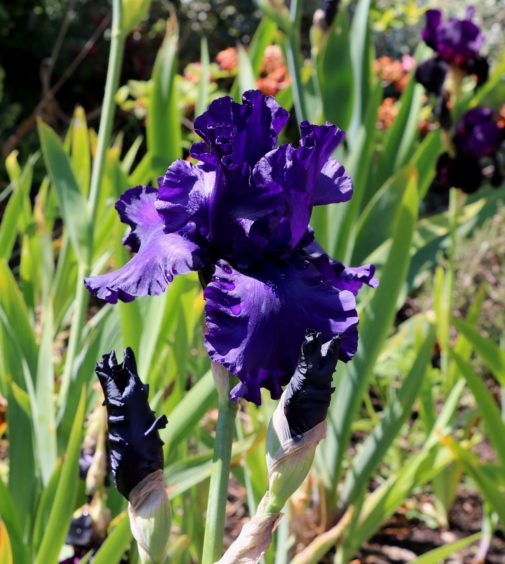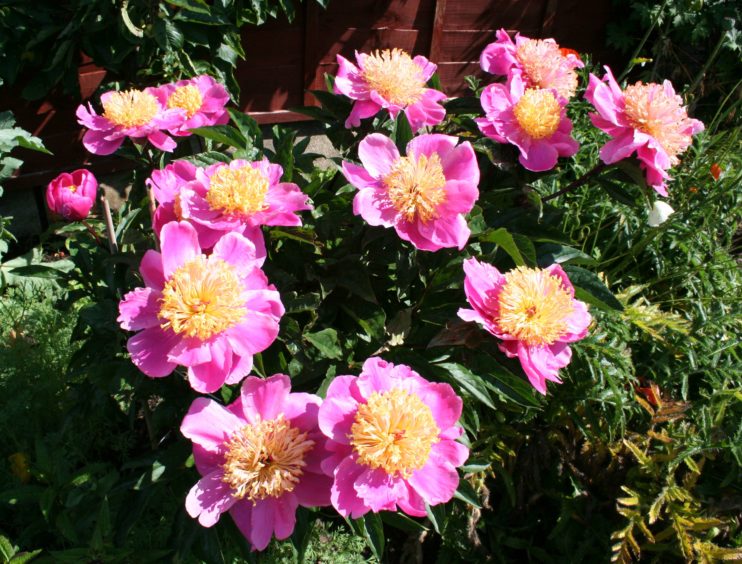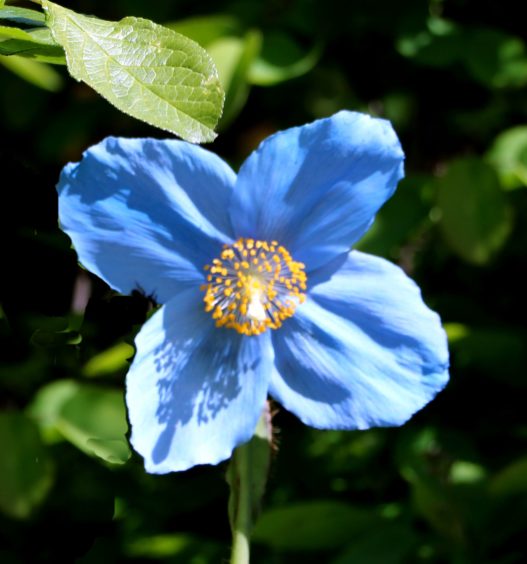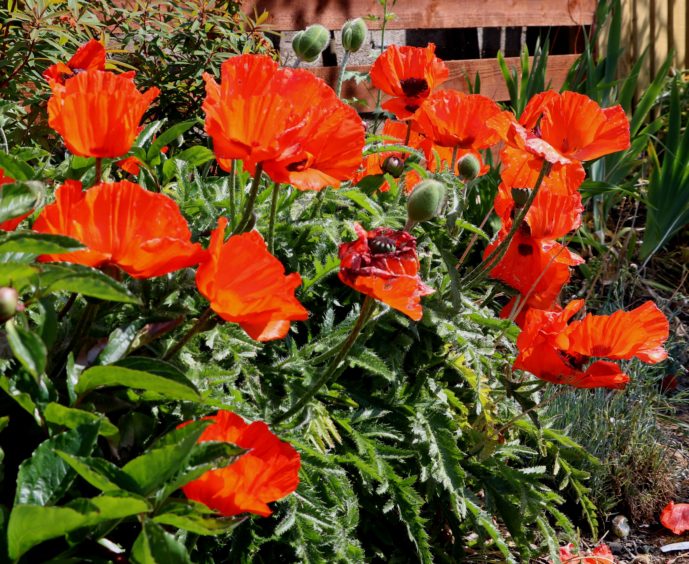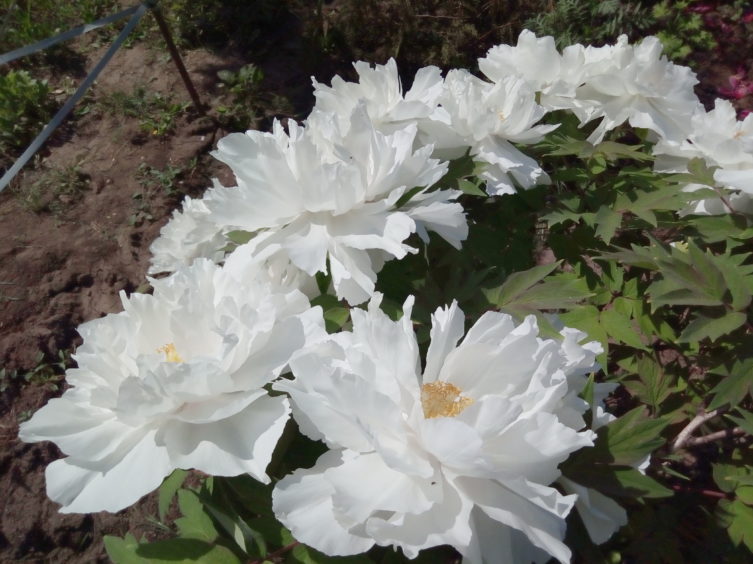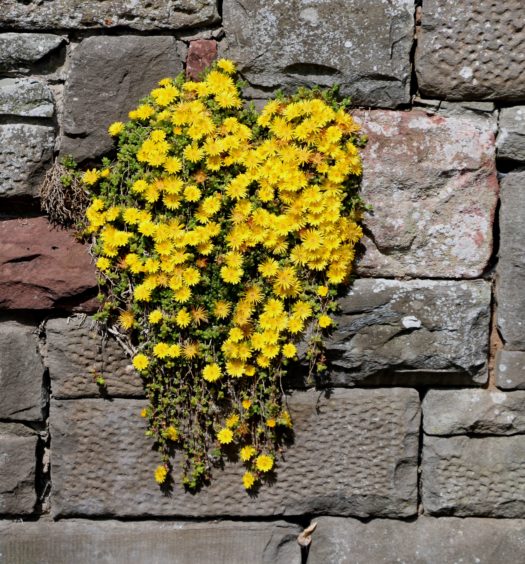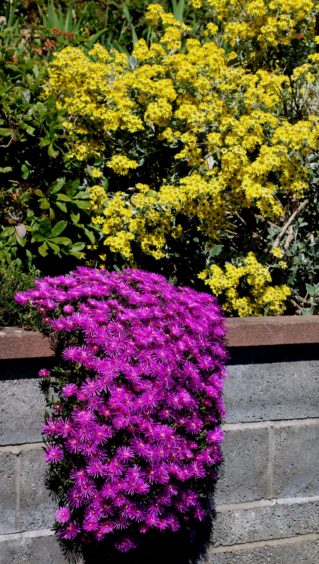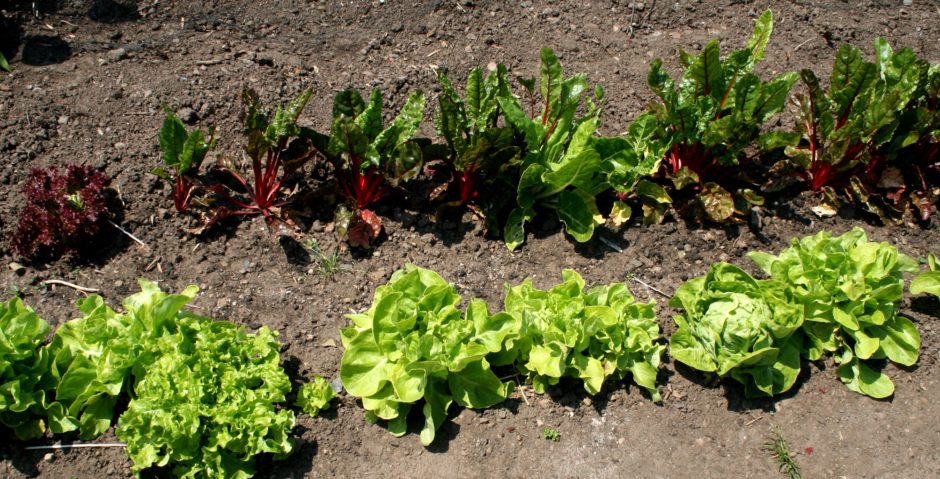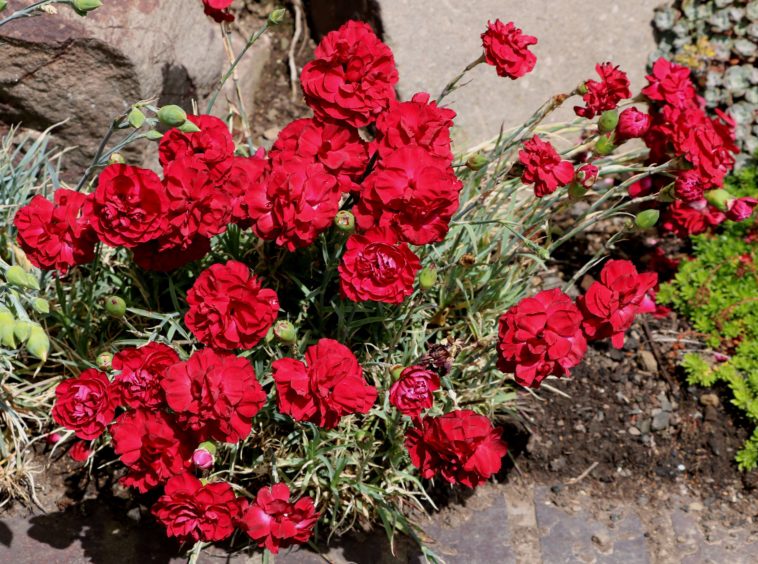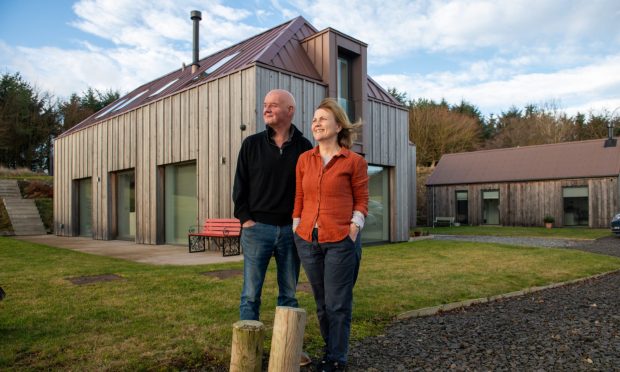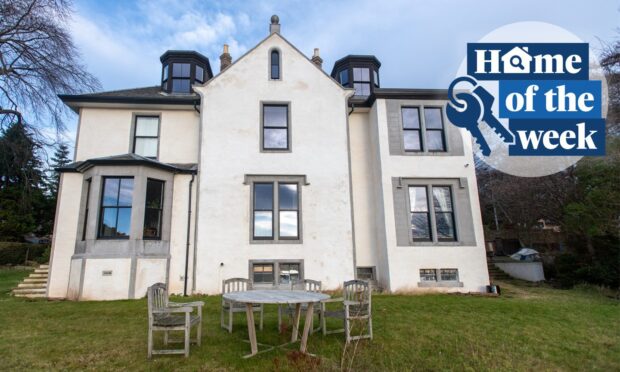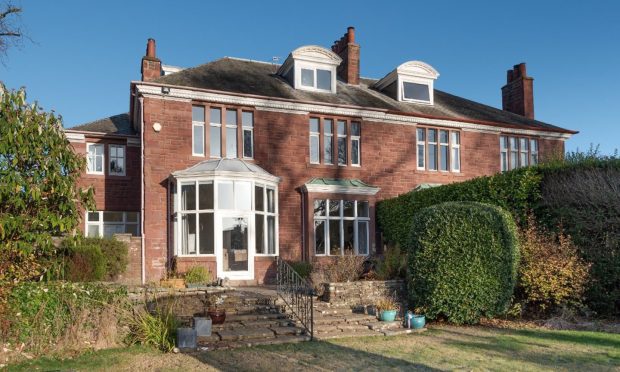Herbaceous plants are traditionally grown in a long border with an evergreen hedge or shrubs behind them to create a dark background to set against the colourful flowers.
However in the small garden landscape, we tend to find spaces to fit them in mixed with other plants.
Different herbaceous plants prefer soil type and location to suit their own needs.
My delphiniums are planted next to fences for easy support and peonies and oriental poppies are planted under my apple trees, which seems to suit them.
Doronicums have ended up in borders against a wall on the patio as I have under planted them with red tulip Abba and purple tulip Negrita which in a normal year they will all flower together.
The colour contrast of red and purple dwarf tulips against yellow daisy flowers of the Doronicum makes a great show in spring.
My Shasta daisies are planted on a difficult bank where they can help to keep down weeds. However I still keep a border dedicated to a selection of my favourites.
Peony Doreen and Hemerocallis Patricia are in the centre of this border adjacent to my Oriental poppies and a large drift of Flag Iris.
At the back of this border I grow my hollyhocks, lupins and red hot pokers.
In mid summer the Oriental lilies have huge bright heads of flowers with fantastic scent so these get a border all to themselves next to paths so they can be enjoyed at close hand.
This area is not wasted while we wait on the lilies to grow in early summer, so it gets a mass planting of the tall Darwin Hybrid tulips, red Apeldoorn and the yellow Golden Apeldoorn, together with the white fosteriana tulip Purissima.
This is claimed to be scented but I have not detected much scent on mine.
Lilies like really good drainage and are not fussed about rich soil so areas for lilies get plenty of land preparation to help drainage before planting.
Borders along the tops of walls are a favourite spot as these are usually well drained and another dwarf plant for the tops of walls is the garden pinks.
I have many different varieties but for sheer intensity of colour the dazzling red Passion is hard to beat.
These come in a wide range of colours and sizes and most have a terrific scent.
Tops of walls are also perfect for planting the succulent yellow flowered Delosperma nubigenum and its brother the purple Delosperma cooperii both of which just love to grow over the top and hang down the wall.
Both of these can also grow well if bits of stem are pushed into the cracks in walls.
They do not need much soil.
However my Astilbe and Himalayan blue poppies prefer a semi shady area with a soil that retains moisture like a woodland fringe.
They associate well with dwarf azaleas and the latter can be planted amongst them.
Herbaceous plants can give flowers over a long period.
The earliest can be the blue Pulmonarias in April, then the yellow Doronicums, but my border is in flower from early February as I take advantage of those plants that go dormant in winter and do not need the space till later.
So I plant up the empty space with snowdrops, aconites, narcissus and daffodils as well as tulips to take me up to the end of spring.
I also experiment with planting early dwarf tulips amongst some of the low growing herbaceous perennials.
I try to use colour contrasts, but getting the timing right always depends on the weather and with frequent mild winters plans often go astray.
Another good combination, (when it works) is a drift of the blue Anemone blanda surrounding a clump of pale yellow Euphorbia polychroma.
In summer the other Euphorbia griffithi Fireglow with orange red flowers is great in the middle of the border as it grows quite tall.
The Euphorbias remind me of the yellow and red variegated Houttunias as they all have sap that can seriously cause a skin rash, so always wash your hands after working with them, and wear gloves when cutting them back.
Wee jobs to do this week
Continue to sow a succession of summer salads as these are fast growing and very popular so crops soon get used up.
Lettuce, spring onion, radish and rocket are perfect for sowing in between slower crops such as sweet corn.
Salads can also be used where ever early crops have been harvested.
The first early potatoes will soon get dug up, and early strawberries brought on under tunnels will soon be finished.
If these have cropped for a couple of seasons they may well get dug in after taking runners off for a new row.
Spaces left from these crops can be sown with fast growing salads.
